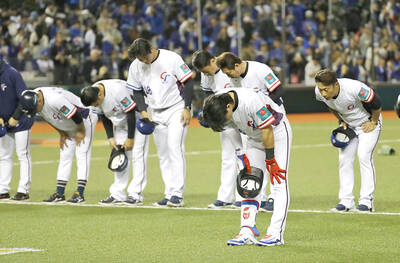Ten-man Universidad de Chile did a Maracanazo when they upset Flamengo 3-2 in Rio de Janeiro in the first leg of their Libertadores Cup quarter-final on Wednesday.
There was another away win for Sao Paulo, who upset last year’s runners-up Cruzeiro in the first leg of their all-Brazilian tie at the Mineirao in Belo Horizonte.
The term Maracanazo was first coined when Uruguay upset Brazil at the giant Maracana Stadium in Rio to win the 1950 World Cup.
Universidad de Chile went ahead in the fifth minute, having squandered a very good chance a minute earlier. The Flamengo defenders were unable to control a cross from Eduardo Vargas from the right on the rain-drenched pitch and Uruguay defender Mauricio Victorino rifled the ball into the net.
The Chileans went further ahead in the 25th minute when midfielder Rafael Olarra met a long, high ball out of defense in the box, rising higher than goalkeeper Bruno to head the ball in.
Striker Adriano, overlooked by Brazil coach Dunga when he named his 23-man World Cup squad on Tuesday, headed Flamengo back into contention six minutes before the interval.
The U were left a man short just before halftime when Chile midfielder Manuel Iturra was sent off for a foul on Willians, his second booking.
However, hardly had the second half begun when The U made it three. Bruno was slow to react to a cross from the left and Uruguay midfielder Alvaro Fernandez beat him at the far post in the 47th minute.
Defender Juan pulled another goal back for the home side one minute from time, but Universidad hung on for victory.
The winners of the tie will meet Guadalajara or Paraguay’s Libertad. The Mexicans won their home leg 3-0 at the Jalisco in the early hours of Wednesday.
At the Mineirao, striker Dagoberto put three-time winners Sao Paulo ahead in the 24th minute and Brazil midfielder Hernanes added the second in the 65th minute from Fernandao’s exquisite backheeled pass.

Taiwan kept their hopes of advancing to next year’s World Baseball Classic (WBC) alive with a 9-1 victory over South Africa in a qualifier at the Taipei Dome on Saturday, backed by solid pitching. Taiwan last night played against Nicaragua. As of press time, Nicaragua was leading 6-0. Bouncing back from Friday’s struggles on the mound, when Taiwanese pitchers surrendered 15 runs to Spain, Team Taiwan on Saturday kept the visiting team in check, allowing just one run in the bottom of the fourth inning. Starting pitcher Sha Tzu-chen struck out one and allowed no hits, except for a hit-by-pitch over

Team Taiwan are set to face Spain in a win-or-go-home match tonight for the final berth at the 2026 World Baseball Classic (WBC), despite losing to Nicaragua 6-0 in the WBC qualifier at the Taipei Dome on Sunday. The home team’s loss on Sunday means Nicaragua finish first in the qualifier round in Taipei with a perfect 3-0 record and advances to next year’s finals. After crushing South Africa 9-1 earlier on Sunday, Spain took second place in the four-team qualifier with a 2-1 record. With a 1-2 record, Taiwan finished third while South Africa placed at the bottom with

Taiwan kept its hopes of advancing to the 2026 World Baseball Classic (WBC) alive with a 9-1 victory over South Africa in a qualifier at the Taipei Dome last night, backed by solid pitching. Bouncing back from Friday’s struggles on the mound, when Taiwanese pitchers surrendered 15 runs to Spain, Team Taiwan kept the visiting team in check, allowing just one run in the bottom of the fourth inning. The win was crucial for Taiwan, as a loss would have eliminated the team from contention for the next WBC. Starting pitcher Sha Tzu-chen (沙子宸) struck out one and allowed no hits, except for

LONG TIME COMING: With the addition of Marcus Smart, the Washington Wizards finally held a team to under 100 points, the last team this season to do so The Detroit Pistons on Monday won their seventh straight game in the NBA with in-form Cade Cunningham making 32 points and grabbing nine rebounds in a 106-97 win over the Los Angeles Clippers. The Pistons, who are in the playoff position, moved to 32-26, their best record at this stage of a season for 17 years. It was an all-round effort from Detroit with Tobias Harris adding 20 points and Jalen Duren making 19 rebounds along with his 12 points. It was a tight contest until Detroit pulled away late in the third quarter to tie their longest winning streak since the 2014-2015